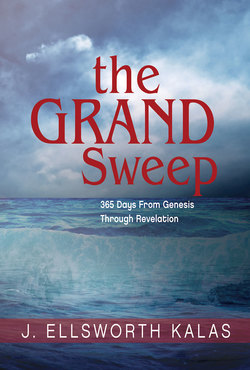Читать книгу The Grand Sweep - Large Print - J. Ellsworth Kalas - Страница 83
На сайте Литреса книга снята с продажи.
Оглавление| DEUTERONOMY 15–17 | Week 10, Day 4 |
God was calling the Israelites into a way of life in which worship and ethics would dominate. Instead of accumulating endlessly, getting ever more to pass on to one’s heirs, there were to be regular opportunities for starting again with a clean slate. This would assure that there would be “no one in need among you” (15:4). But it was not a naively optimistic approach; it was built on the hard realization that “there will never cease to be some in need on the earth” (15:11).
Such a program could succeed, of course, only in a nation or a community bound together by a common religious commitment. It is at this point that economics, ethics, and worship come together. Properly, then, there is again a review of several major religious festivals; these occasions were the spiritual power undergirding the political and economic structure. Our values need to be lifted up on occasions of sacred celebration.
The day would come when Israel would want a king. But he must remain close to the people in his lifestyle, not accumulating silver, gold, horses, and wives. Above all, he is to be a student of God’s Law, having it near at hand so he can “read in it all the days of his life”—not simply to accumulate knowledge or as an act of piety, but “so that he may learn to fear the LORD his God” and follow God’s path (17:19). Ideal? Yes. Attainable? Yes. Did Israel have it often? No.
PRAYER: Help me, O Lord, to be a source of light in a pluralistic and secular society, to your glory and to human gain; in Christ. Amen.
What significance, if any, do you find in the way a discussion of the holy days is interspersed with various social and ceremonial laws?
